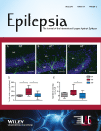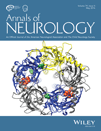
Authors have retracted a pair of PLOS ONE papers after an investigation suggested the articles might contain some fiction.
In the papers, the authors describe collecting and analyzing the DNA of mosquitoes to look for changes following the introduction of bed nets treated with insecticides to combat malaria. However, an investigation by the Institut de Recherche pour le Développement in France could not confirm some of the experiments ever took place.
Here’s the retraction notice for “How the Malaria Vector Anopheles gambiae Adapts to the Use of Insecticide-Treated Nets by African Populations,” which appears at the top of the paper:
Continue reading PLOS ONE retracts 2 malaria papers over doubts experiments ever took place
 Pro-life activists have asked JAMA to retract a 2005 paper that suggested
Pro-life activists have asked JAMA to retract a 2005 paper that suggested 




